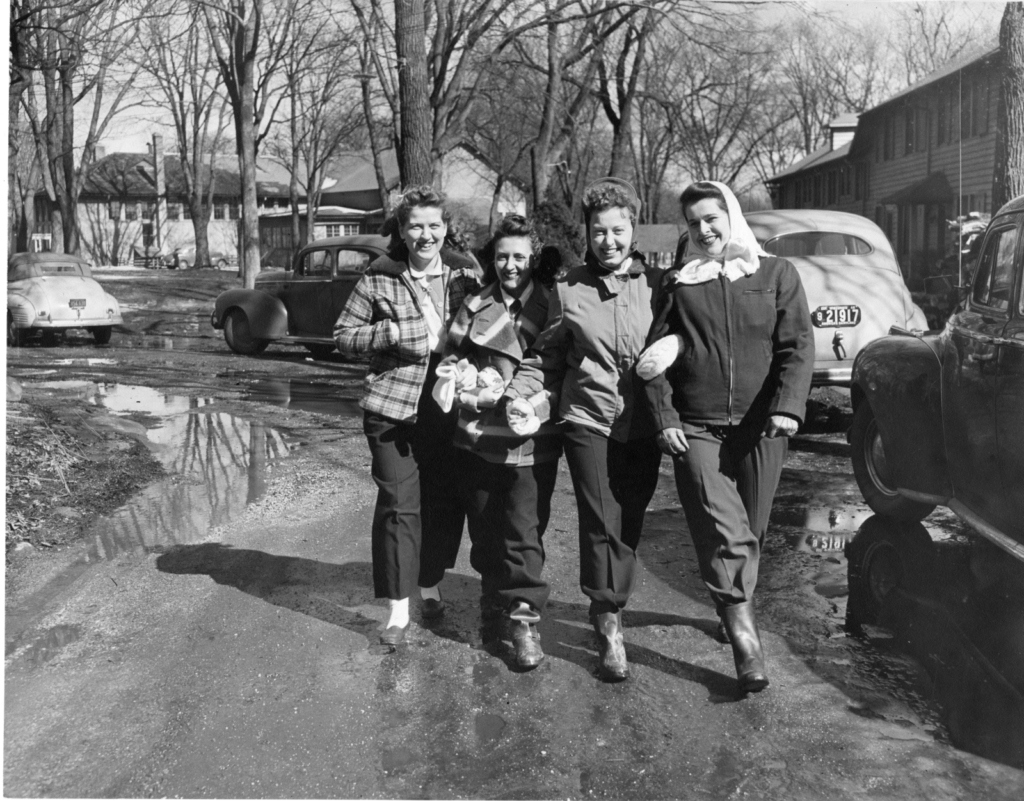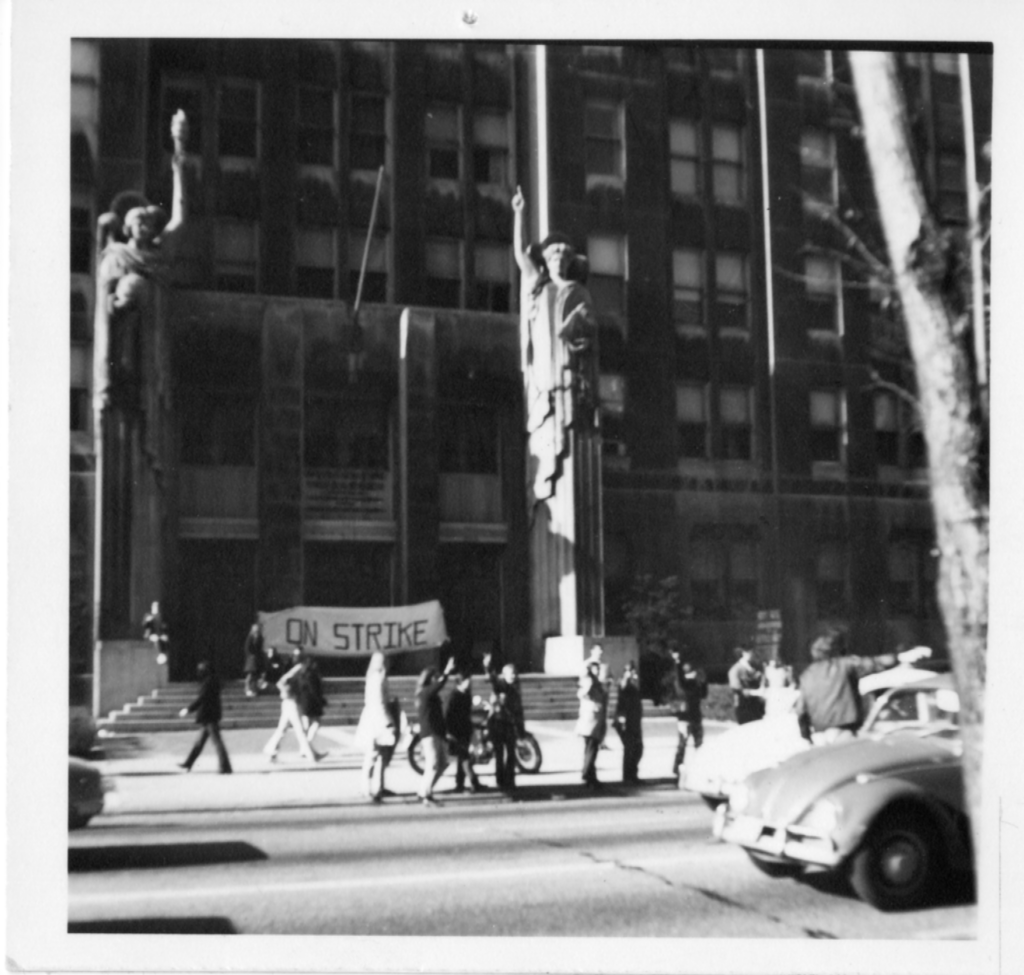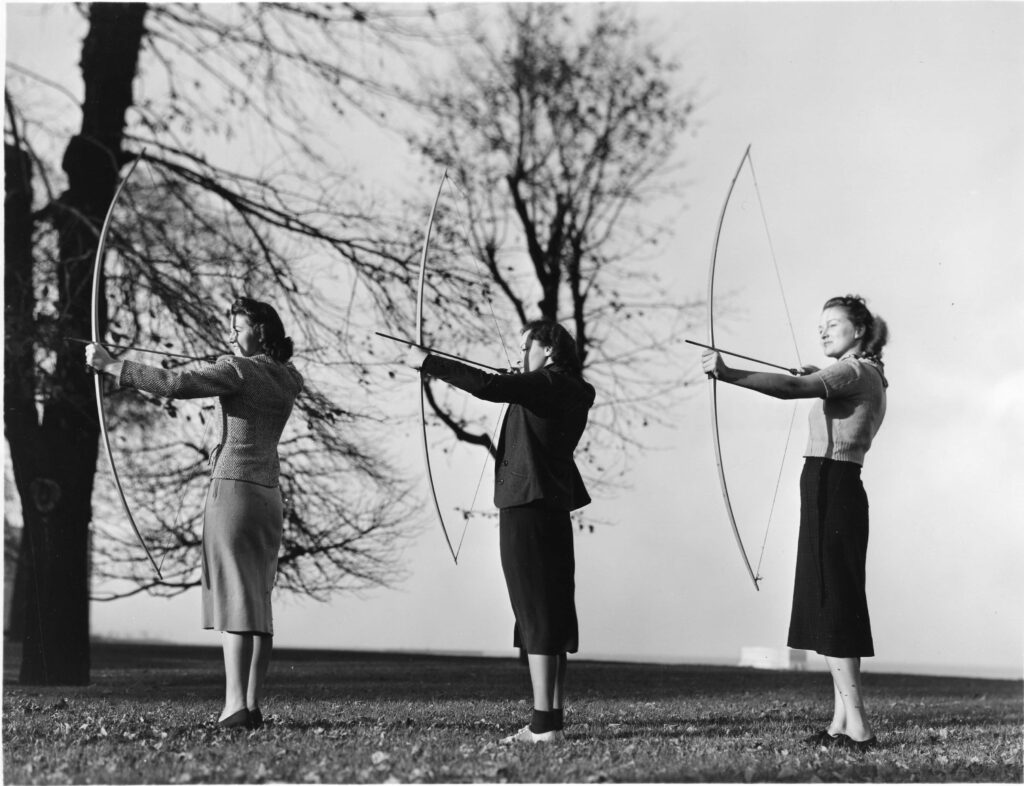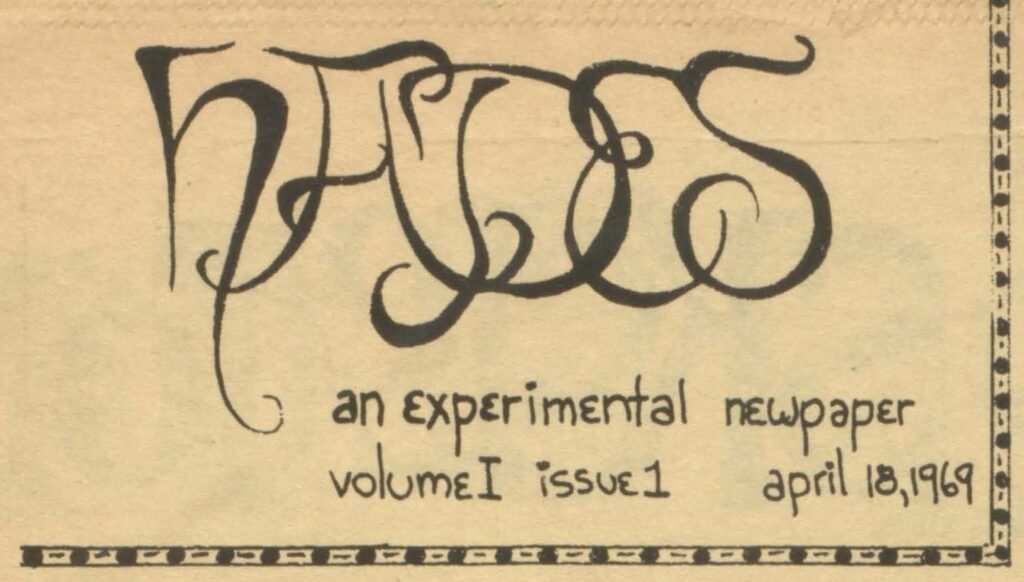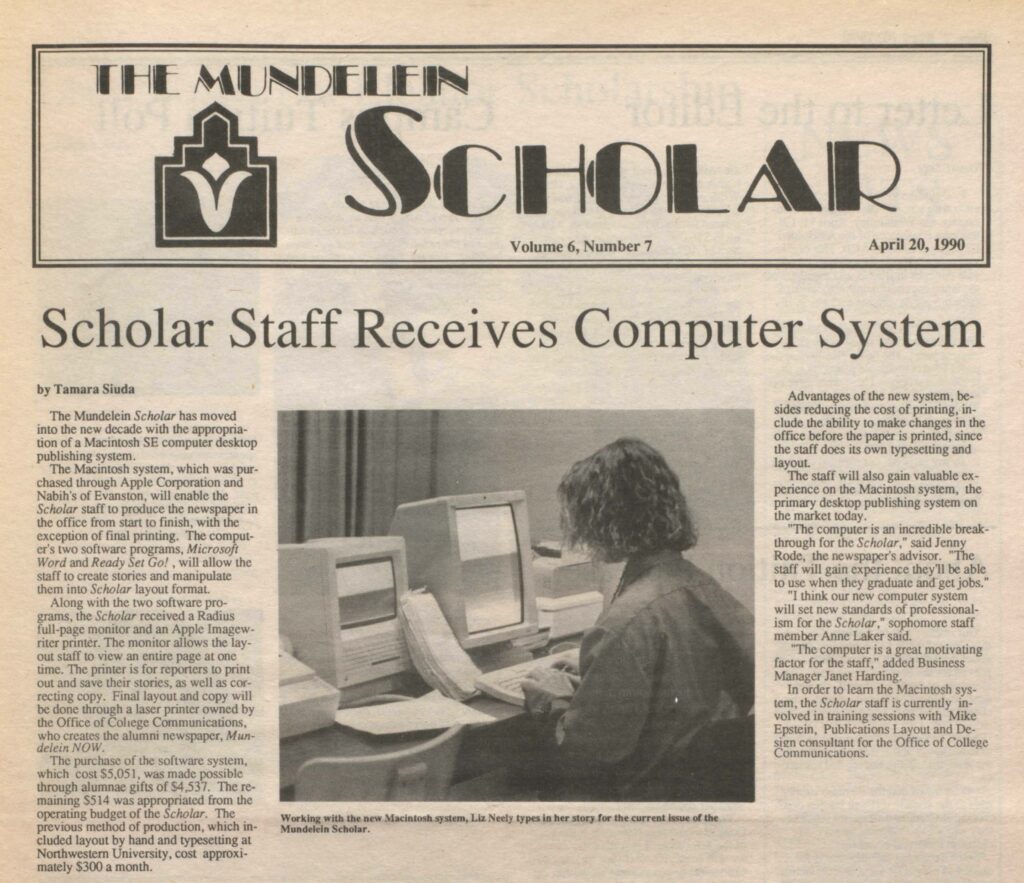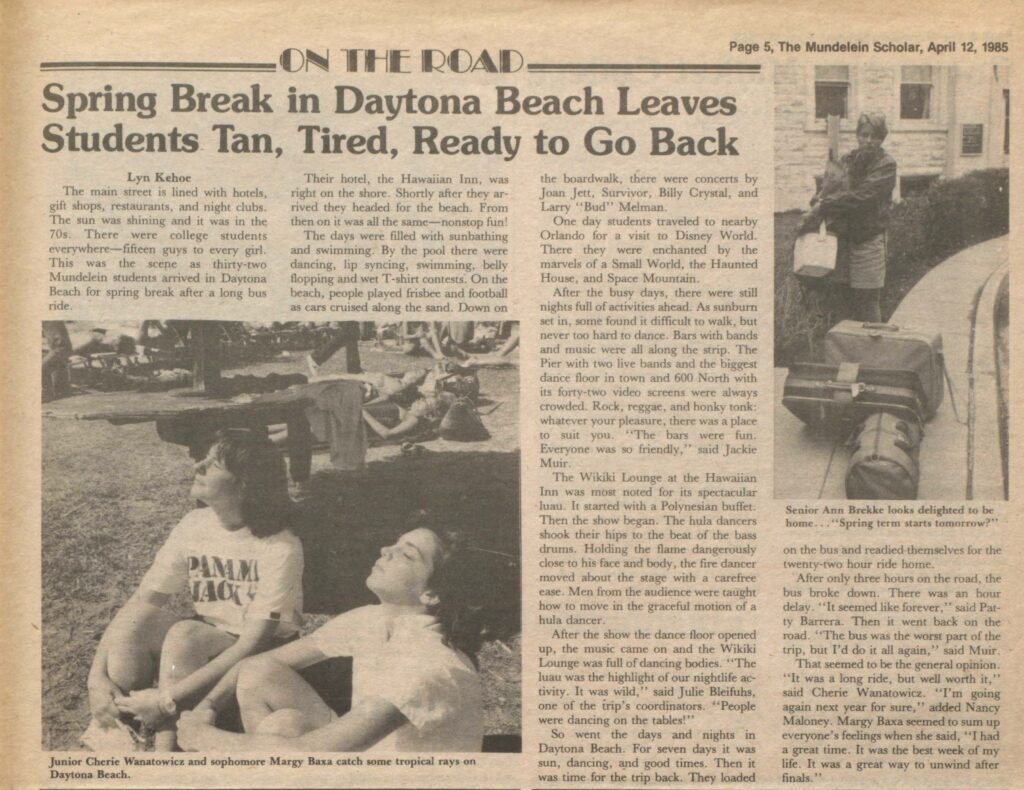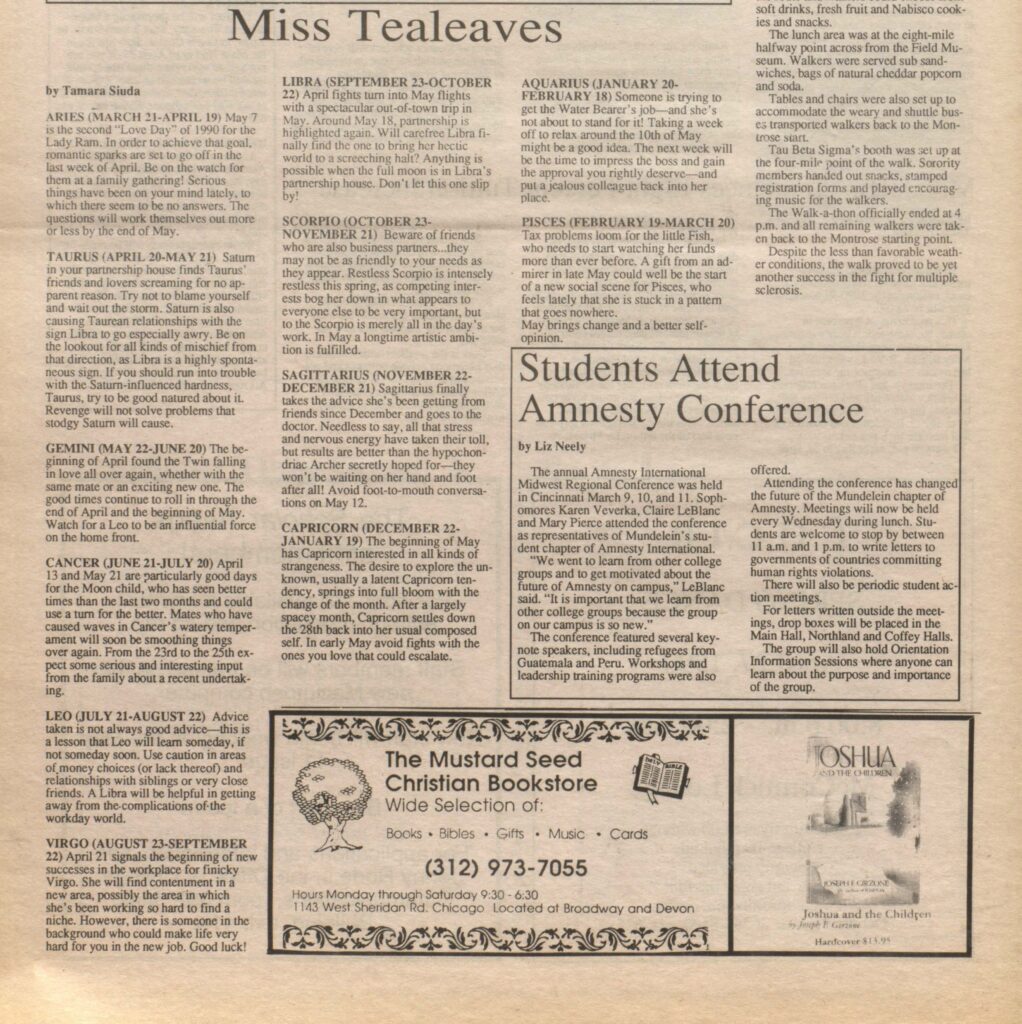Throughout the last academic year, a talented group of graduate students have worked at the Women and Leadership Archives as part of the Illinois History Digital Imaging Grant project. These Digitization and Metadata Assistants, all pursuing degrees in Loyola’s Public History master’s program, have worked diligently on digitizing materials from the Mundelein College* Collections, writing transcriptions, and creating metadata for the Mundelein at 90 digitization project. As their time at the WLA came to a close, they each shared a little about their experiences engaging with the Mundelein College Collections and archival work. The images and digitized materials in this post will be added to the Mundelein College Collection on the Illinois Digital Archives.
I immensely enjoyed being a part of the IHDI grant for the better part of this year. I’ve had the opportunity to scan and digitize numerous photograph collections, transcribe student publications and scrapbooks, and re-folder collections to make them more accessible to the public. Working on each of these projects has allowed me to see the project from many angles. Thus, the experience has been well-rounded and fulfilling. I encountered a variety of archival work which in turn exposed me to a potential career path. The Mundelein at 90 collection is extensive and impressive. The vast number of items displays a full picture of Mundelein’s history, which is enjoyable to behold as a student worker and as a member of the public. Through my time with the IHDI grant, I gained a great appreciation and understanding for Mundelein College.
One of my favorite collection items were the ones depicting regular activities and community building at Mundelein. For example, I scanned and wrote metadata for batch of photographs that depicted a broad spectrum of student activities. These activities included selling war bonds to support the wartime in World War II, protesting the Vietnam War, building snowmen and ice skating on campus, celebrating Women’s Week, and more. It was interesting to try to differentiate between the winter activities because many of them depicted very similar activities: playing in the snow, ice skating, standing by massive ice formations for over 50 years. See below for some of these examples. Seeing these photographs illuminated what life was like at Mundelein. These students in the photographs were around my age so I felt like I could relate to them in many ways. Maybe we enjoyed the same kind of activities in college. Maybe we had similar, close-knit friend groups. It is fun to imagine what similarities we could have while also working to preserve their memory. Interacting with these collections emphasized how important this grant is to the preservation of Mundelein history and it has been a pleasure to be a part of this work.
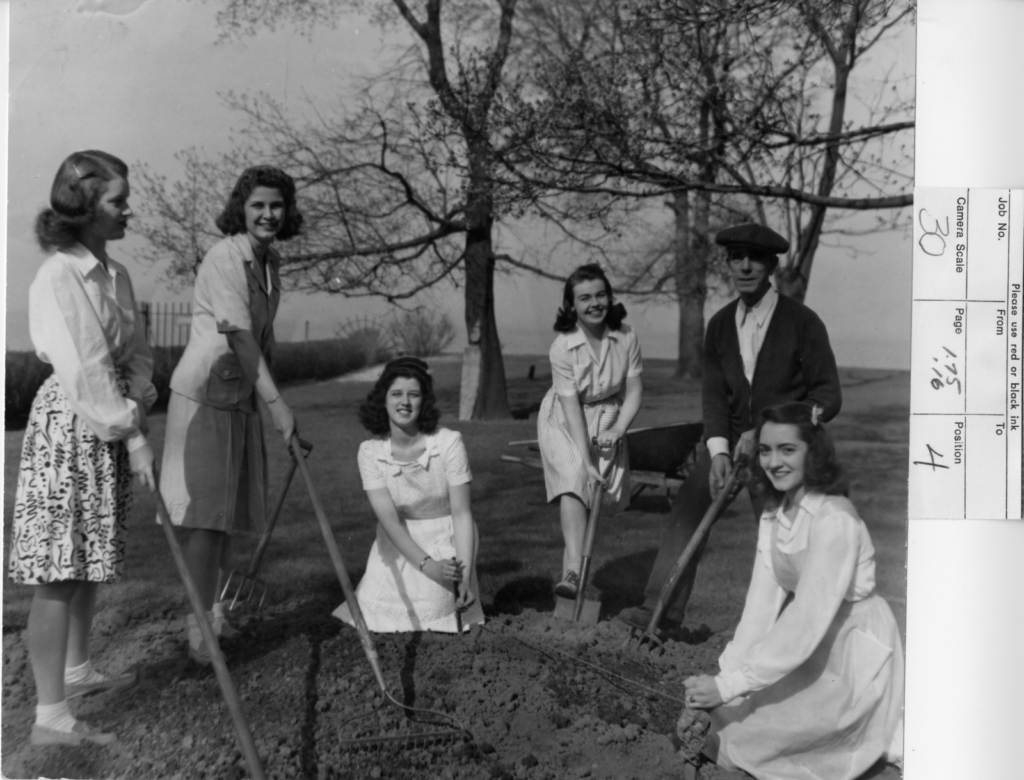
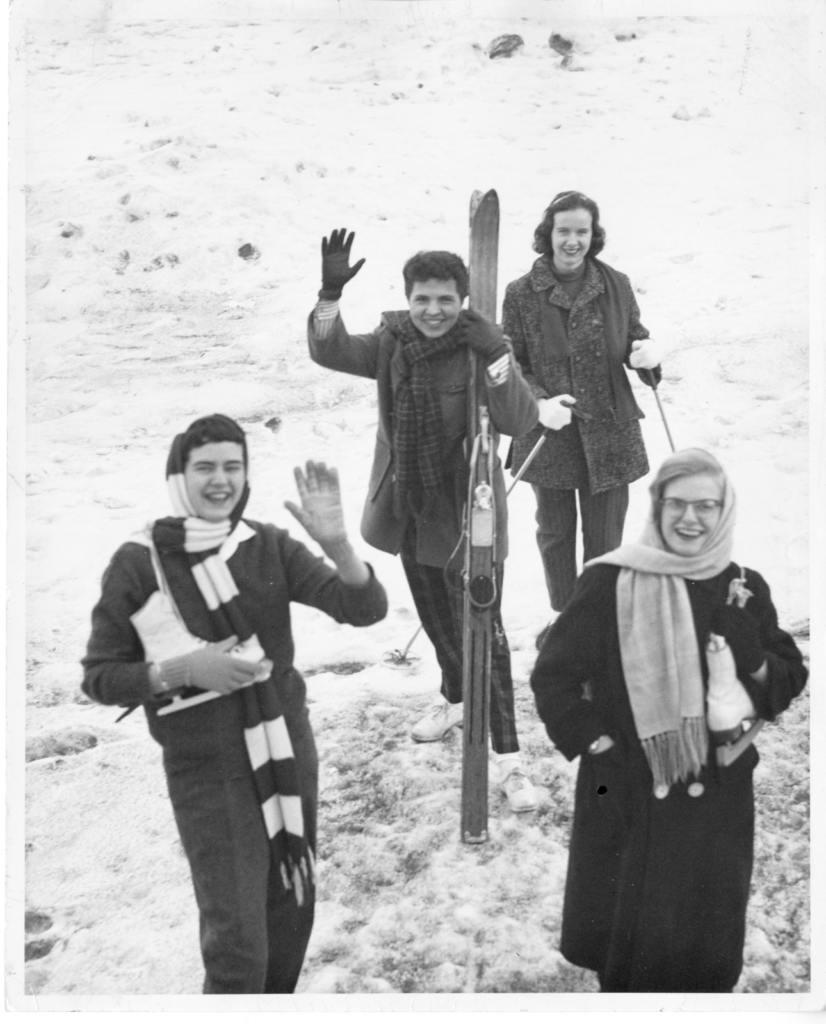
Since last fall, I have encountered a wide array of collections, but my favorite archival materials that I worked with are the photographs of Mundelein College students spending time at Piper Hall. I feel a strong connection to these generations of women that furthered their education in the same building that I do today (and we also share a love for spending time on the porch overlooking Lake Michigan).
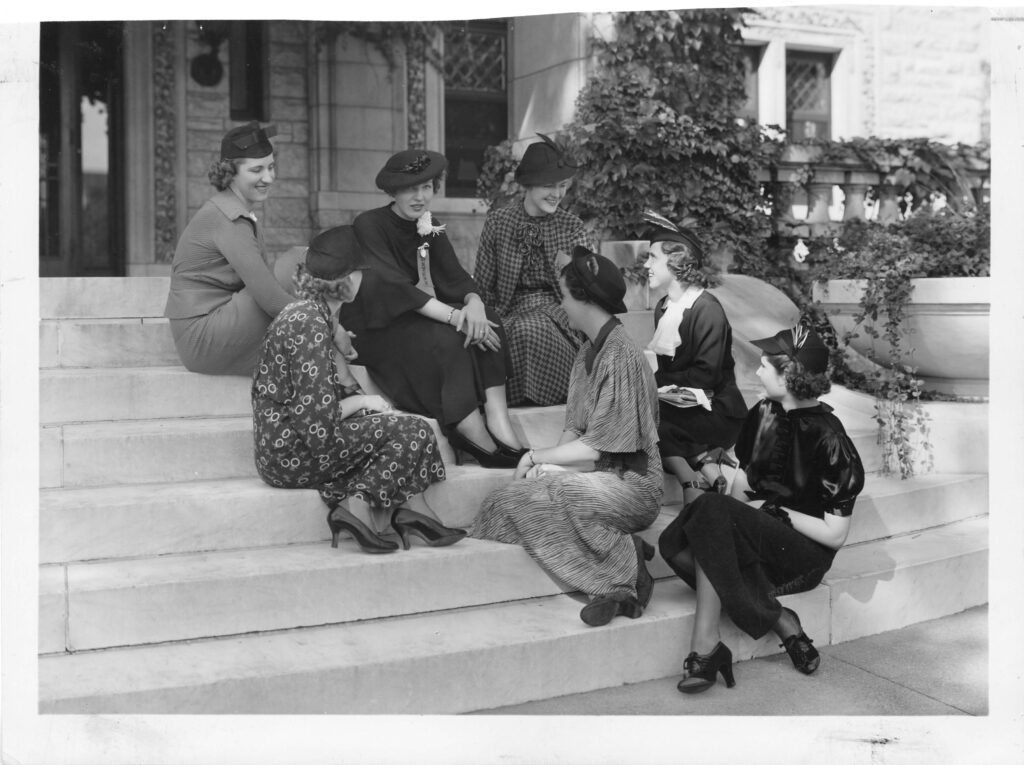
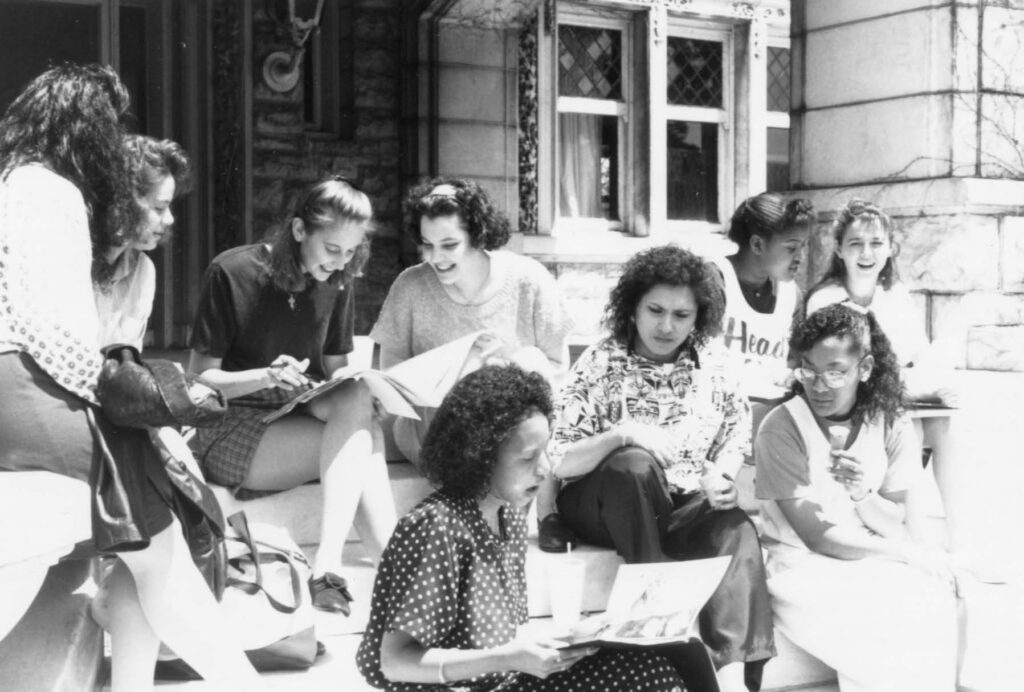
The most important takeaway I will carry with me after this project is the importance of “small history.” Most Americans today do not know the names of any Mundelein College graduates, or that that the school even existed. But the women that studied and taught at Mundelein were activists, artists, scientists, writers, musicians, and members of their communities. Even if these women are not a part of the “big history” written about in high school textbooks, they are as worthy as anyone else to be historically represented and celebrated for their contributions to the world around them.
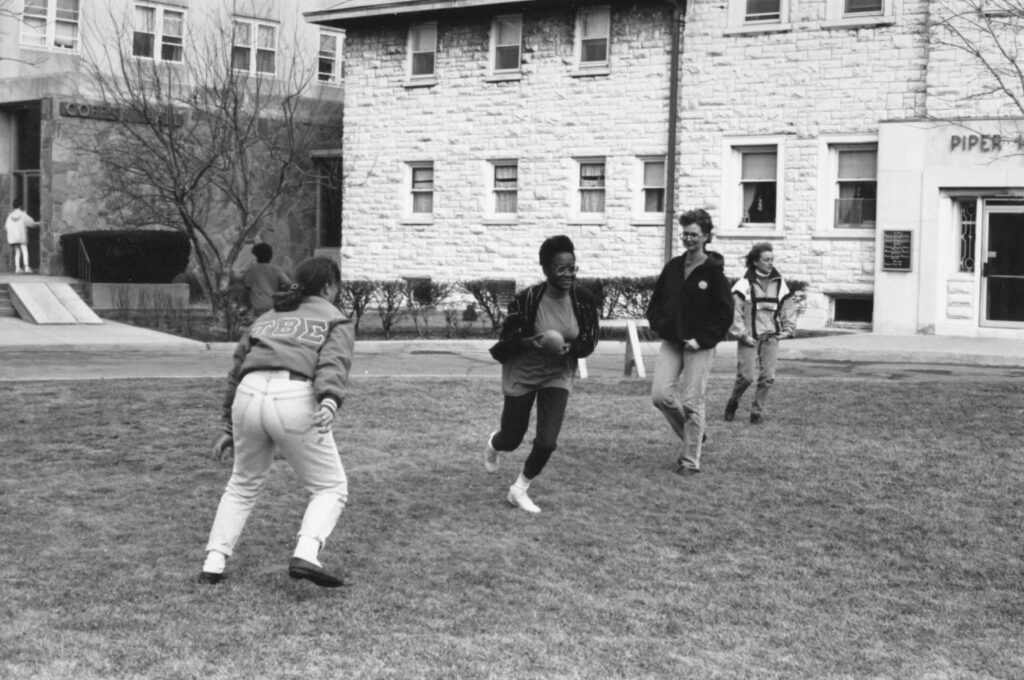
Of all the amazing, interesting, and engaging materials I have come across during my time working on the IHDI grant, one image lives in my head rent free—three Mundelein College students standing on a hill with bows and arrows poised to fly. For me the picture represents Mundelein College and is layered in composition and meaning. The image is compositionally stunning. The students are spaced evenly, and the three-quarter angle provides directionality and movement to the bows. The expansive lake in the background and the blurred trees in the middle ground create the perfect stage for these students to stand proper and athletic.
Students at Mundelein College had many options to engage with sports, art, literature, theater, and more. This archery photo from 1938 evokes artistry, emotionality, and athleticism that embodies the vision of Mundelein College during its earliest years. More broadly, it captures a moment in time in which many women were gaining the opportunity to explore not only academia, but variety and activity in the public sphere as well. The collection is full of these moments, and in a world where women’s stories are often left out, seeing images of women engaging in activities that emphasize strength and exploration is extremely gratifying and empowering.
During my time at the WLA, I worked with eight different publications. My favorite among them was definitely the Hades newspaper, with one issue published in 1969. Most of the other works dealt with campus events, alumnae luncheons, and birth announcements, but Hades discussed current events and interviews with students. Half of the issue was an article on “the moral evolution” that took the form of an interview with seven students who were described as being “for” premarital sex. They discussed topics like marriage, the pill, and relationships. It definitely wasn’t something I was expecting from a Mundelein newspaper, but it was a very interesting read.
The format of the newspaper itself was creative, with different fonts, drawings, and handwritten text. This made it fun to look through, but more difficult to transcribe! It was still a welcome break from blocks of typewritten text in other publications. My favorite part of this project was seeing all of the variations in Mundelein newspapers over sixty years. I absorbed so many names and dates that it made me feel like I was a part of the Mundelein community.
This has been my first time working on projects for a digitization grant, and it has been a great experience in more ways than one. Besides working with metadata for the first time, I have also focused on transcribing The Mundelein Scholar, a student newspaper established in 1984. It was really interesting to see the trends change through the years and be able to guess the year it was published just by the hairstyles. Publications were dedicated to the college experience on and off campus and included columns on the Senior Spring Break trip to Daytona Beach, the local pizza place ‘Geppetto’s’, the rise in popularity of astrology, and even when the school received their first Macintosh SE computers in 1990! Newspapers are not normally used as an academic source, yet I find it so interesting how much raw perspective and emotion is offered from these student publications whose only agenda is to have their voices heard.
When you work with the same collection every day, you build a connection with it. You get to know the students, their activities and involvement on campus, and their individual personalities. It made me reflect on my own experiences in school, laugh at the silly trends I remembered taking part in, and reminded me what it feels like to be a part of a strong community. Although these students have graduated and grown, they remain students in this living document, merging the past and present together. This project provided a unique opportunity to get to know these students and I began to realize there is not much of a difference between myself and them. I’m a student working in the same building they studied in, researching what they did during their time here, and its so exciting how that cycle continues and keeps these stories alive.
The materials digitized and transcribed through the Mundelein at 90 digitization project will be made available on the Illinois Digital Archives in the coming months. You can view the many photographs that are available now from the Mundelein Collection!
* Mundelein College, founded and operated by the Sisters of Charity of the Blessed Virgin Mary (BVM), provided education to women from 1930 until 1991, when it affiliated with Loyola University Chicago.
For more information on this post, contact wlarchives@luc.edu.
Loyola University Chicago’s Women and Leadership Archives Blog is designed to provide a positive environment for the Loyola community to discuss important issues and ideas. Differences of opinion are encouraged. We invite comments in response to posts and ask that you write in a civil and respectful manner. All comments will be screened for tone and content and must include the first and last name of the author and a valid email address. The appearance of comments on the blog does not imply the University’s endorsement or acceptance of views expressed. Questions? Please contact the WLA at wlarchives@LUC.edu.

